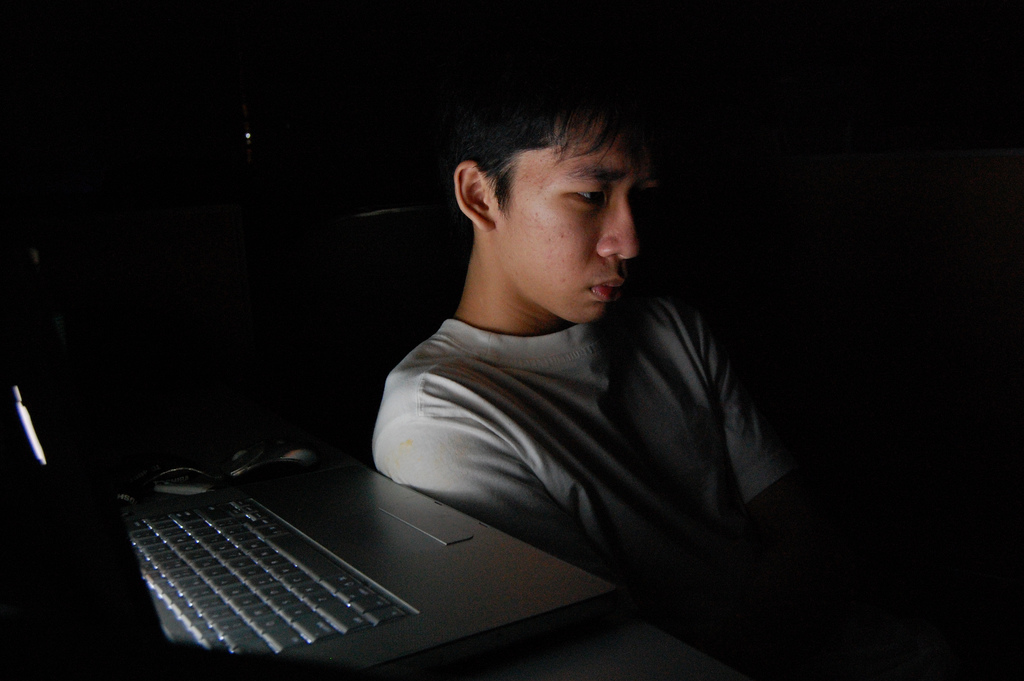Sir — India, it seems, leads the list of countries that were surveyed for a study on cyberbullying of children. Almost 37 per cent of parents admitted that their children had fallen prey at least once, a significant jump since 2016. But what is it that makes Indian children especially vulnerable to bullying? One reason could also be that four out of 10 Indians are not aware of cyberbullying. The internet age dawned on this country quite suddenly and the parameters of what constitutes harassment online are clear to very few. Awareness programmes in this regard are the need of the hour.
Sheila Chakraborty,
Calcutta
Lines of wisdom
Sir — In his article, “More than clay” (Oct 21), Gopalkrishna Gandhi talks about various statues of Mahatma Gandhi. He describes a particular one in Beijing by the artist, Yuan Xikun. The latter portrays Mahatma Gandhi as reading a book with care and, more importantly, worry. The author speculates that the book in the Mahatma’s hand might as well have been Our Final Century by Martin Rees.
In his book, Rees speaks of the threat to mankind from terror, error and environmental disaster. Several cataclysmic incidents that could take place in the future are listed in the volume. Indeed, it seems appropriate that the Mahatma would try to gauge and then find solutions to these threats. In his absence, it is the collective responsibility of world leaders to take steps to mitigate these risks.
Subodh Jha,
Patna
Read the scriptures
Sir — It is unfortunate that devotees of Ayyappa forcibly blocked the entry of women between the ages of 10 and 50. Violence, in any form, cannot be acceptable to the gods. However, there is something else that must be considered here. The women trying to force their way in were activists and not devotees (who would have observed a 41-day fast before visiting the temple). Was there really a need for activism when matters were so sensitive? The entire situation was made worse by political parties that took full advantage of the tension and kick-started a blame game.
While the law of the land needs to be respected at all costs, traditions and religious sentiments should not be dismissed offhand. Women devotees of Ayyappa could perhaps visit the many other temples devoted to him that do not have strictures regarding who can enter the sanctum sanctorum. One thus hopes that the apex court will consider religious scriptures — as it did while striking down instant triple talaq — when it hears the review petitions that have been filed before it.
Whatever the verdict, violence in the name of religion cannot be condoned. After all, there are no ‘victors’ or ‘vanquished’ in the eyes of the almighty.
S. Balakrishnan,
Jamshedpur
Sir — The lone dissenting judge in case of the Sabarimala verdict was a women. Some of the most vociferous protests against the judgment in Kerala are also coming from women. This bears testimony to the dangerous nature of superstitions, which make enemies of people who should ideally be comrades.
Rajesh Chowdhury,
Murshidabad
Sir — The statement given by Prayar Gopalakrishnan, a former president of the Travancore Devaswom Board, that allowing women of all ages into the Sabarimala temple in Kerala would turn it into Thailand is atrocious. He also had the audacity to insinuate that women devotees cannot complain if they are harassed and molested during the pilgrimage. This is a blatant threat. Immediate legal action should be taken against Gopalakrishnan.
In allowing women of all ages to enter the Sabarimala temple, the apex court has not only upheld the rights of women but has also dealt a blow to the likes of Gopalakrishnan. Does the restriction on women devotees entering the temple come from religious scriptures? This obnoxious rule was made by men to deprive women.
Shalini Gerald,
Chennai











